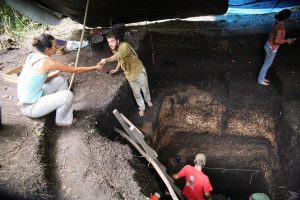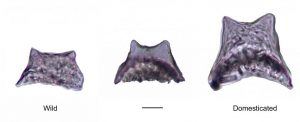In the study to identify when wild rice first began to be grown for food in South America researchers discovered that Amazonian farmers found out how to manipulate wild rice so the plants could provide more food 4000 years ago.

Researchers from University of Exeter, Northumbria University, Universidade Federal do Oeste de Pará and University of São Paulo have studied 16 samples of microscopic plant remains from ten different time periods found during excavations during 2014 in South West Amazonia, which has been occupied by humans for at least 10000 years. More phytoliths, hard, microscopic pieces of silica made by plant cells, were found at higher ground level, suggesting rice began to play a larger role in the diet of people who lived in the area – and more was farmed – as time went on. Changes in the ratio of husk, leaf and stem remains found at different ground levels also suggest the Amazon residents became more efficient harvesters over time, bringing more grain and fewer leaves to the site. The rice grown, Oryza sp, also became bigger over time compared to the wild rice first cultivated by the South Americans. Ancient South Americans learned how to grow bigger rice crops with larger grains, but this expertise may have been lost after 1492 when the indigenous population was decimated.

The researchers state that the ancient were growing crops with larger and larger seeds. Even though they were also eating wild and domesticated plants including maize, palm fruits, soursop and squash, wild rice was an important food, and people began to grow it at lake or river edges.
(after Lautaro Hilbert, Jose Iriarte, Elizabeth Veasey, Carlos Augusto Zimpel, Eduardo Goes Neves, Francisco Pugliese, Bronwen S. Whitney, Myrtle Shock, Popular Archaeology & University of Exeter)